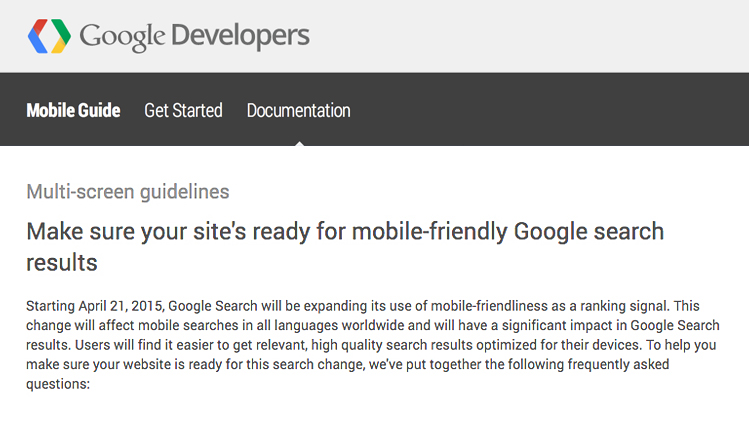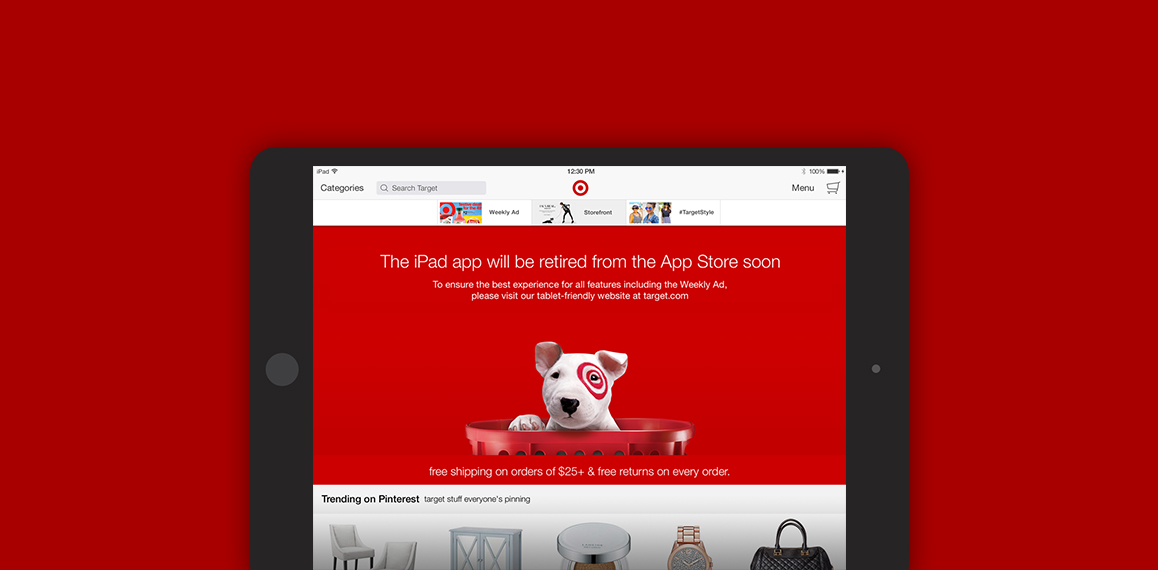As web based technology advances beyond what we thought possible we are seeing a surprising shift from native device-centric mobile apps to more universal web-based alternatives. So what does this mean for the future of apps?
Recently I launched the Target app on my iPad only to be presented with a surprising message. It appeared that Target was preparing to discontinue the app with no plans of replacing it with a new version. Rather the message indicated that new features built into their mobile site would take it’s place. More companies are shifting away from native apps to mobile sites with advanced integrations but why?
The answer is actually quite simple… cost. With the growing number of mobile OS platforms and the cost associated with developing apps for each, it comes as no surprise that mainstream companies are jumping ship to more cost effective web-based alternatives that rely on the flexibility of responsive website design. In it’s infancy responsive web design was not always viewed as a required technology but an announcement in 2015 by Google, the largest search engine on the planet, changed all that. The announcement basically indicated that priority placement would be given to mobile responsive websites when conducting searches on mobile devices. With mobile devices accounting for over half of all internet usage the desicion was pretty clear.

Companies scrambled to redesign and redevelop their sites to adhere to this new restriction. Interesting enough with fully responsive sites that performed admirably on any device universally, the need for device specific apps diminished. Why pour money into the development of multiple apps for iOS, Android and even Google’s newest platform Fuchsia, when you can develop one web app to cover all bases? This is exactly the question that has led companies to dispense with their ongoing plans to support app development. It is a decision that has the potential to save millions of dollars in overhead technology costs. Target is not the first and certainly won’t be the last. About a year ago Patagonia, one of the largest suppliers of outdoor apparel announced it was discontinuing it’s mobile app for a better web experience. A decision that saved them hundreds of thousands of dollars.
So what does this mean for the future of apps?
I believe that depends on the nature of the app itself and how far web technology will go within the next decade. I think it is safe to say that there are numerous apps currently available that could not be easily replicated in a web based experience using technology we have today. These include games and other graphically intensive apps that require large file sizes. Current bandwidth and the performance of networks around the world has not quite gotten to the point that gigabytes of data can be easily streamed. Certain interactions seen in more advanced apps have also not been fully replicated in web based scripts but who knows what the future holds. If we were to go back 10 years or even 5 years and look forward, some of the commonplace things we are doing today with mobile devices seem like they were pulled straight from a science fiction movie.
There is also one more thing to consider. In the wake of a recent array of web based security hacking attempts the question of security comes into play. I know that hacking especially on the level of the recent Yahoo breach begs the question if a web app can be as secure as it’s device-centric counterparts. Apple for one has painstakingly worked security protocols into their app approval process to ensure their customers are not left open to security loopholes. I would imagine that until advanced web technology such as fingerprint authentication is perfected apps will continue to reign supreme when sensitive information is at risk.
Are apps really on their way out?
When it comes to the question of whether or not I am ready to write off the usefulness of apps? My initial reaction is to say NO but being a web designer and developer I am hopeful and eager to usher in a new generation of mobile responsive web technologies that push the industry beyond our wildest dreams. I have already been involved in projects to develop complex web based apps that are faster and more efficient than ever before. Technology such as Angular.js and many others have given birth to a new era of web design where the internet may well become the app store of the future.



Comment